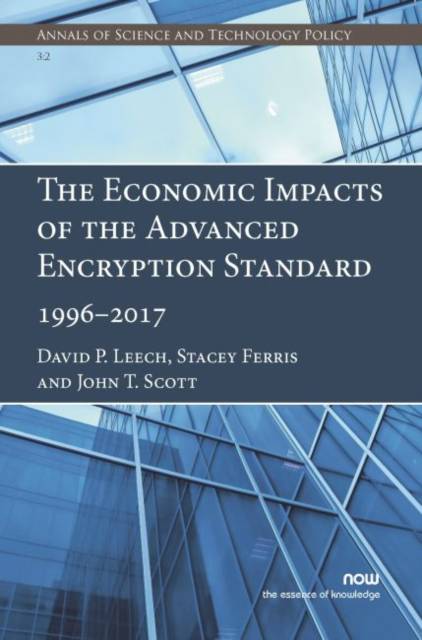
- Afhalen na 1 uur in een winkel met voorraad
- Gratis thuislevering in België vanaf € 30
- Ruim aanbod met 7 miljoen producten
- Afhalen na 1 uur in een winkel met voorraad
- Gratis thuislevering in België vanaf € 30
- Ruim aanbod met 7 miljoen producten
Zoeken
The Economic Impacts of the Advanced Encryption Standard, 1996-2017
David P Leech, Stacey Ferris, John T Scott
€ 124,45
+ 248 punten
Omschrijving
The Economic Impacts of the Advanced Encryption Standard, 1996-2017 evaluates the net social benefits of advanced encryption standards (AES). This is one of many areas where the National Institute for Standards and Technology (NIST) has promoted innovation and industrial competitiveness to ensure that public and private computer systems can protect the confidentiality, availability, and integrity of digital information in the face of ever more powerful computers and developments in the field of cryptography. After an introductory chapter, Chapter 2 provides the ABCs of cryptography as it applies to the AES and an introduction to the computer networks that employ encryption systems. It further delves into the evolution of NIST's role as the Federal Government's authority on the computer security of civilian-focused agencies, the AES competition (1997-2000), and subsequent cryptographic validation programs including what these validation programs reveal about the composition of the encryption product market. Chapter 3 characterizes how the AES program and subsequent dependent industry standards have functioned as economic policy tools that reduced the economic barriers of the 1990s to the development, commercialization, and application of cryptographic technologies, as well as their continuing indirect role in supporting the quality of encryption systems, reducing encryption system risks, and facilitating the growth of related industries. This chapter also places the AES program in an industrial organizational context by describing the economic value chain of which the AES program is a part. Chapter 4 discusses the selection of pre-survey interviews with subject matter experts, the design of the survey instrument, and survey execution. Chapter 5 describes survey results, compares selected qualitative survey findings to pre-survey expectations, describes the three-tiered approach to estimating economic impact in context of actual survey results, and reports the costs of NIST's AES program for 1996-2017. Chapter 6 presents the results of the three-tiered approach to estimating the overall economic impacts of the AES program. Chapter 7 provides a summary and conclusion of the analysis.
Specificaties
Betrokkenen
- Auteur(s):
- Uitgeverij:
Inhoud
- Aantal bladzijden:
- 132
- Taal:
- Engels
- Reeks:
- Reeksnummer:
- nr. 10
Eigenschappen
- Productcode (EAN):
- 9781680835885
- Verschijningsdatum:
- 7/10/2019
- Uitvoering:
- Paperback
- Formaat:
- Trade paperback (VS)
- Afmetingen:
- 156 mm x 234 mm
- Gewicht:
- 199 g

Alleen bij Standaard Boekhandel
+ 248 punten op je klantenkaart van Standaard Boekhandel
Beoordelingen
We publiceren alleen reviews die voldoen aan de voorwaarden voor reviews. Bekijk onze voorwaarden voor reviews.











